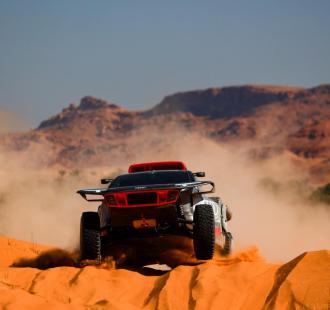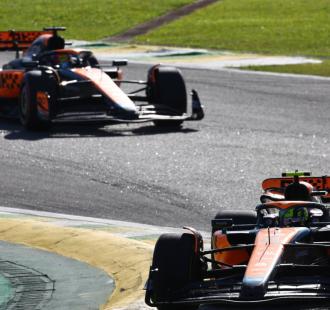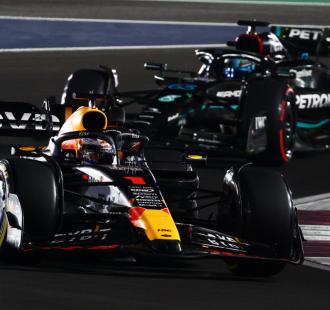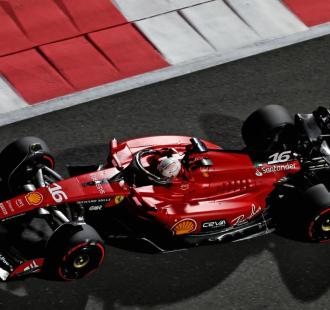
'Mr Dakar' amazed by revolutionary Audi machine ahead of 2024 rally attack
Audi announced three years ago that it was going to participate inthe Dakar Rally, with the project immediately drawing attentionbecause the German marque was going to do so with a revolutionaryelectric concept. The Audi RS Q e-tron is fully electricallypowered and features a combustion engine with an energy converter,which charges the electric battery along the way. To increase thechances of victory, top drivers Stephane Peterhansel, Carlos SainzSr. and Mathias Ekstrom have been recruited. So far, Audi mighthave expected a bit more from the three-year project, which expiresafter 2024. The car is lightning-fast, but reliability sometimesleaves something to be desired. Last year, Peterhansel and Sainzcrashed hard, while Ekstrom did not finish further than 14thoverall. It did, however, record two stage victories. So what tomake of the Audi project? RacingNews365 caught up with 14-timeDakar winner Peterhansel, who explains in detail just how theproject appealed to him. "First of all, it was a big question markfor me whether it was possible to drive an electric vehicle in thedesert," he says. "When we started talking to Audi, I said: 'Okay,if there's a brand that can pull this off, it's Audi.' They have alot of knowledge and experience in motorsport and with hybrids. "Itwas a great opportunity for me to discover a new world and workwith the best company in the world. There was no hesitation injoining the team and it was very interesting." "We were disturbedby the noise of the car." Peterhansel has gained a lot of technicalexperience over the years, competing no less than 35 times in theDakar, but the Audi car was still something new. "I learned a lot,but not enough. For normal people, I am not an engineer ormechanic, it is so complex. "My navigator Edouard Boulangerunderstands it a little better than I do, because he is anengineer. But we also had to learn to drive another car. Forexample, you don't have a gearbox. That was not that complicated,but it was necessary to learn a car like this." However, it didn'ttake Peterhansel that long to master it, although the electric Audidid have one annoying side effect. "In terms of driving, it is notso difficult because you have no gearbox and a very good engine."We were only disturbed by the noise of the car. But it took two tothree days to drive fast and honestly, it was perfect from then on.You learn fast." Peterhansel reveals why he had to get used to thenoise. "That was one of the complicated things, the noise of theatomic energy. We charge the battery with the energy converter andwhen we drive a stage, the engine keeps running all the time. "Thatmeans, for example, the engine turns five to six thousand rpm whenyou brake, whereas in a normal car the engine also stops for amoment when you want to bring the car to a stop. "Because of thehigh RPM, this car makes a lot of noise during braking, which isnot normal. We got a little confused by the noise. But in terms ofsteering and braking, the car is very simple to drive." Peterhanselthinks few teams will adopt the concept The 58-year-old Frenchmanis not sure if this machine is going to have much impact in theDakar Rally and rallying. "It's hard to say whether this is goingto be the future of competition. Audi has put something incrediblein place because five years ago it was not in the line of thoughtthat an electric car would run such a race, especially since we areoperating under the same regulations as other cars. "It's not likewe refuel or recharge more. We drive to the next bivouac and that'ssometimes several hundred kilometres without a pit stop, nothing atall. That's incredible. "Audi also flew the design of the cardifferently. "It's not just about the technology of the electricmotor. The car represents the new generation and is alreadyperforming well in rallying. The concept they chose at thebeginning proved to be right. From the first Dakar Rally, we knewwe could drive long stages and we maintained the performance untilthe end of the year." "The problem is that it is so complex. For asmaller team, it is very difficult and expensive to develop such acar. "We have spent a lot of money and energy and at the moment itis not giving the expected return. In the end, I like the technicalsolutions of the car. We may have to look for weight solutions tomake the car lighter. But the concept is incredible and workswell."


